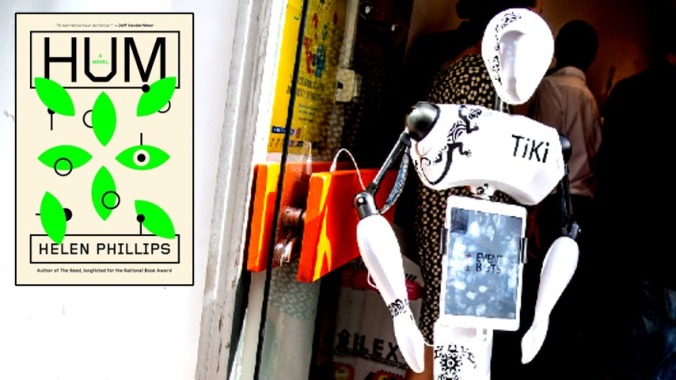Book Club Discussion: ‘Hum’ Made Us Skeptical of Parenthood—Not Just Because It’s in a Near-Future Dystopia
Hum by Helen Phillips, our November/December Book Club pick, is an all-too-possible projection of how tech might make our lives even shittier—and a novel that's ultimately about parenthood (for better or worse).
Photo: Getty Images
For our November/December book club, Jezebel read Hum by Helen Phillips. Jezebel Editor-in-Chief Lauren Tousignant and I convened earlier this month to talk about the book after reading it—so beware of spoilers. If you joined us in reading this novel, please use the comment section to chime in! Otherwise, subscribe to Jezebel, and stay tuned for our next book club pick…
Nora: This took me longer than I expected to read, because, while the chapters are so short, and it’s a pretty quick read, I was getting so fucking stressed. It just felt too probable for the next like, 20 years.
Lauren: This was a perfect name for the book, because I felt really buzzy the whole time—all the dystopian elements are like, a little bit happening now but absolutely seem way more probable in 20 years.
Nora: Wait, actually we should back up in case people haven’t read the book. Hum takes place in a near-future dystopia version of, what, it’s definitely New York City right?
Lauren: That’s what I assumed.
So, the issue today is kids spend too much time on their screens, right? In this world, kids literally have these “wooms”—an egg-shaped dome that they sit in all day, and it’s just a huge screen. And that’s what everyone is comforted by. Like they don’t even have a screen anymore; they are in the screen. Or, you know, everyone’s looking at their phones on the subways now. But in this future, there are screens everywhere, yelling ads and news at you 24/7. Or, now, we pay to not have ads on Netflix or Hulu, but in the future, you have to pay to not have ads for literally any interaction—doctors, cabs, going to the grocery store, getting a delivery.
The technological anxiety of today is just heightened by a thousand.
Nora: The inciting incident is May, the main character, getting very slight facial modifications from a startup that is trying to beat facial recognition from the cameras that are everywhere. I thought that was a really interesting way to start the story; something that would definitely exist. However, I think where the book really succeeds—even though there’s a lot of plot in it—is that, to me, the plot was kind of ancillary to the overall vibe of the book, which was just really unsettling.
Lauren: Yeah, the plot was kind of mundane. If you wanted to really boil it down, it is just a stressed-out and overwhelmed mom (May) trying to do something nice for her kids that blows up in her face in a way that she has no control over.
-

-

-

-

-

-

-

-

-

-

-

-

-

-

-

-

-

-

-

-

-

-

-

-

-

-

-

-

-

-

-

-

-

-

-

-

-

-

-

-








































